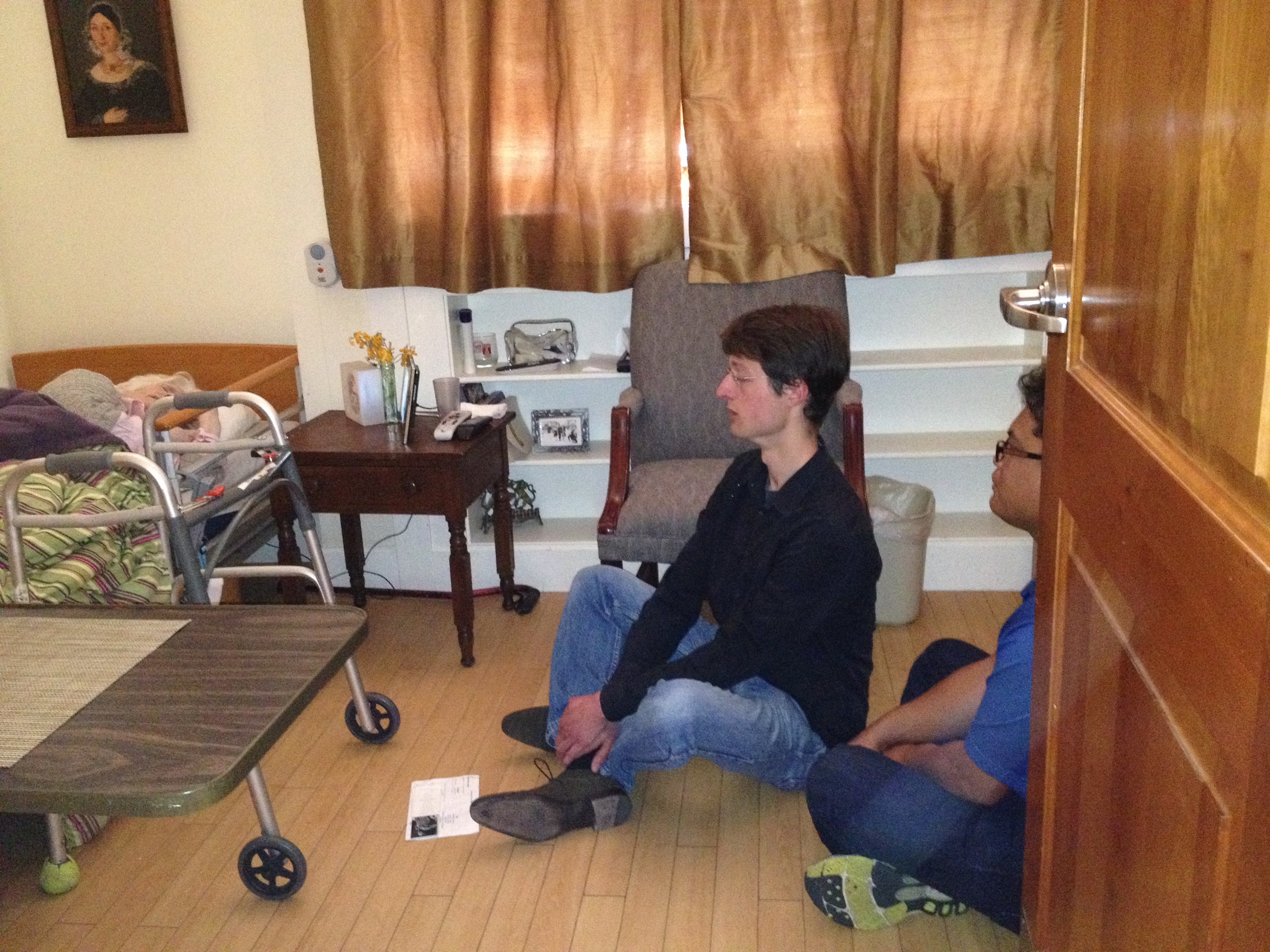Threading Together a Community with the Mantram
/This week we hear from Jan, a YA living in Berkeley, California. Jan shares here how he has integrated his mantram practice to help him build spiritual community throughout his work and personal life.
Jan, in the background, playing basketball at a recent Young Adult retreat.
After a glorious weekend with like-minded young adults at the Blue Mountain Center of Meditation retreat center in Tomales, I always used to be sad to come back home, where I didn't have roommates, not to mention like-minded roommates.
So I decided to start a community in San Francisco similar to what I enjoyed at retreats.
As I brainstormed, I remembered how I had read somewhere that working together for a selfless purpose unites people in a deeper way than just going out to a restaurant.
What project could we work on? Singing mantrams for elders!
Many Bay Area YAs are musical and this would combine our talents with our spiritual practice and with a need of the elderly.
Even those who are not "musical" are invited, since it's more about the mantram than about the music
At the next retreat I didn't just go straight home. A couple YAs and I extended the February YA retreat by carpooling to SF and singing mantrams at elder care home before heading to a restaurant.
Over the next year, we had a few such group visits, and I enjoyed singing mantrams for those at the brink of death and seeing their reactions so much that I did it almost every week, even when others weren't available to sing with me.
Jan, singing mantrams to those near the end of their lives.
To include as many of Easwaran's recommended mantrams as possible, I even added songs to the repertoire of tunes I had picked up at retreats. Both older and newer songs are included on the new "Easwaran and Children" website.
Soon after a mantram singing session for the elderly with another YA, I moved in with him and the community I had been dreaming of became more of a reality.
We meditated together now and then, hiked together occasionally, and even read to each other from the Ramayana -- a dream come true.
(That YA even introduced me to the person who is now my wife. But that's another story...)
As I was doing my Masters in composition I thought about how I could take advantage of my work for a degree in music to support this work in community building and in integrating the eight points into my daily living.
I decided to make my thesis project include an album of mantram songs.
Spiritual reading, one of Easwaran's points: I had read in a book by Gandhi that if the music is beautiful but the musician doesn't have a beautiful heart, then the music is not worth listening to...or something like that.
Which musicians could sing with genuine conviction for this project? Other passage meditators using mantrams in their daily life!
On "Ten Thousand Threads," the album named after a 15th century passage about the mantram, you'll hear two singers whose name you might recognize if you've been to a retreat in Tomales.
The experience definitely built community, meaning I spent more time with like-minded aspirants and we came out of it with more shared and meaningful experiences.
I'll end with the 15th century passage from which I got the title for the album. The passage is by Kabir and is included in "God Makes the Rivers to Flow," Easwaran's anthology of passages recommended for meditation.
Weaving Your Name – Kabir
I weave your name on the loom of my mind,
To make my garment when you come to me.
My loom has ten thousand threads
To make my garment when you come to me.
The sun and moon watch while I weave your name;
The sun and moon hear while I count your name.
These are the wages I get by day and night
To deposit in the lotus bank of my heart.
I weave your name on the loom of my mind
To clean and soften ten thousand threads
And to comb the twists and knots of my thoughts.
No more shall I weave a garment of pain.
For you have come to me, drawn by my weaving,
Ceaselessly weaving your name on the loom of my mind.


